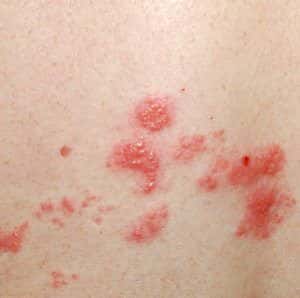
Q. I am totally confused about the shingles vaccine. I was immunized three years ago at a cost of $220. Since I did not have insurance at the time I had to pay for the shot out of pocket.
Now I read that protection from the vaccine wanes over time. Is that true? Do I need to get another vaccination? How effective is the vaccine at preventing shingles?
Friends have experienced the pain of shingles and I do not want to go through that. But I also don’t want to keep getting shots that don’t work.
A. The CDC has recommended that “all adults 60 years old or older should get the shingles vaccine [Zostavax].” This public health organization makes the shot sound appealing. In 2011 the CDC issued this encouraging statement about Zostavax:
“In a clinical trial involving thousands of adults 60 years old or older, Zostavax reduced the risk of shingles by about half (51%) and the risk of post-herpetic neuralgia by 67%. While the vaccine was most effective in people 60-69 years old it also provided some protection for older groups.
Research suggests that the shingles vaccine is effective for at least six years, but may last longer. Ongoing studies are being conducted to determine how long the vaccine protects against shingles.”
On August 22, 2014, the CDC muddied the waters by providing new, less optimistic data. Although short-term effectiveness studies were somewhat reassuring, longer-term research offers a disappointing story. The vaccine appears to wear off over time. Using a statistical model for determining effectiveness from year 7 through year 10 after vaccination, the CDC “estimated a vaccine effectiveness of 21.1% for prevention of herpes zoster [shingles]…”
Side effects that the CDC warns about:
“The most common side effects in people who got the vaccine were redness, soreness, swelling or itching at the shot site, and headache.”
Bottom Line on the Shingles Vaccine:
The public health experts have concluded that they do not know how effective the shingles vaccine really is for preventing an outbreak after five years, especially for people over 60.
There is another way to analyze the data and it makes the vaccine look even less impressive. David Newman, MD, is a leading expert on the issue of drug effectiveness. He and his colleagues have developed a website called The Number Needed to Treat: TheNNT.com.
In a video, Dr. Newman discusses the shingles vaccine and its effectiveness (find it about 3 minutes into the video). He points out that 60 people would need to be vaccinated to prevent one case of shingles. Not such great odds.
More revealing, though, is the recognition that in the randomized controlled trials, 97% of subjects DID NOT GET shingles no matter what. Of those who DID get the vaccine, about 1.5% got shingles. Of those who DID NOT get the vaccine, 3.0% came down with shingles. The absolute risk reduction was roughly 1.5%. That translates to 60 people getting the shot to save one person from a shingles attack. And that does not take long-term protection (beyond five years) into account.
A vaccine under development may offer better protection (Expert Opinion on Biological Therapy, Feb. 2016). It combines a virus surface protein with an adjuvant to boost immune response. Although early results are promising, there is not yet enough data to determine if the effects will be better or more long-lasting than those of the current vaccine.
Please discuss the CDC data with your doctor in light of the number needed to treat overview. Ask whether another vaccination makes sense.
Share your own experience with the shingles vaccine below. Has it worked to prevent an attack or have you experienced shingles anyway? What about nerve pain? Did the vaccine help prevent post herpetic neuralgia (PHN)? Others will be interested in your story.
Revised 5/16/16

